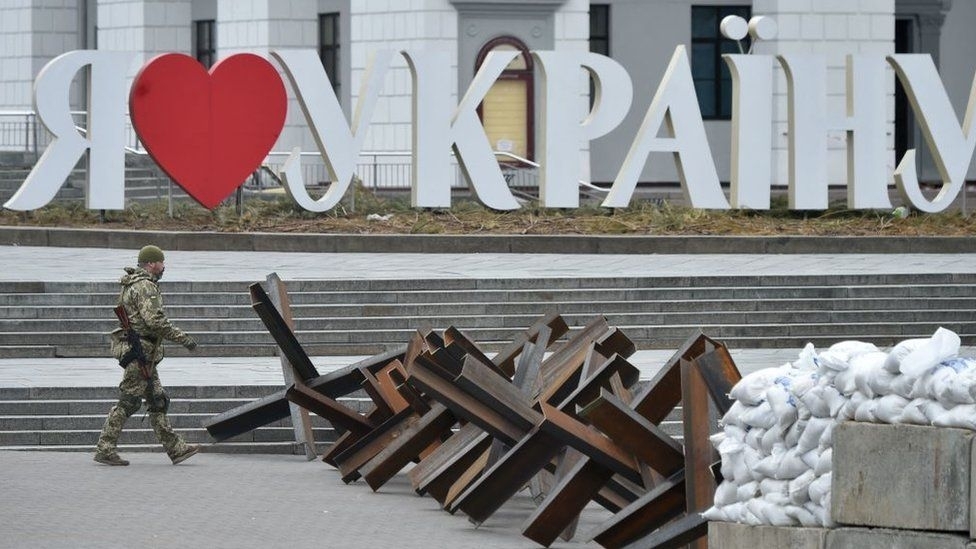Ukraine war: Kyiv prepares for Russian attack

When the Russian offensive started, as sirens sounded in Kyiv for the first time, some people here feared that the city might fall by the afternoon.
Reports were coming in of a long convoy of armour and heavy weapons pushing down from the north-west. Military analysts had a high opinion of the Russian army. It had, they said, been professionalised, with invaluable experience of perfecting weapons and seasoning men in the war in Syria. The tactical errors I had seen the Russians commit when they tried to crush a rebellion in the republic of Chechnya in 1995 were, I was told, ancient history.
The consensus about the Ukrainian armed forces on the first day of the war was that they were much stronger than they had been in 2014, when they could not stop Russia seizing Crimea and establishing two breakaway enclaves in eastern Ukraine. But Russia had the numbers and the firepower. The Ukrainians, it was said, would rediscover the truth of an aphorism attributed to Stalin: "quantity has a quality of its own."
The first two weeks of the war proved that those predictions were wrong. The Russians blundered; the Ukrainians resisted. Around Kyiv the Russian advance stalled. In the south, it was a different story. They worked steadily towards opening a land corridor between Crimea and Moscow's enclaves in eastern Ukraine.
But it has been clear from the outset that control of Kyiv is crucial to winning arguments in politics as well as on the battlefield. While President Volodymyr Zelensky's government holds the city, he can claim not to be defeated, and President Vladimir Putin in the Kremlin cannot claim victory.
